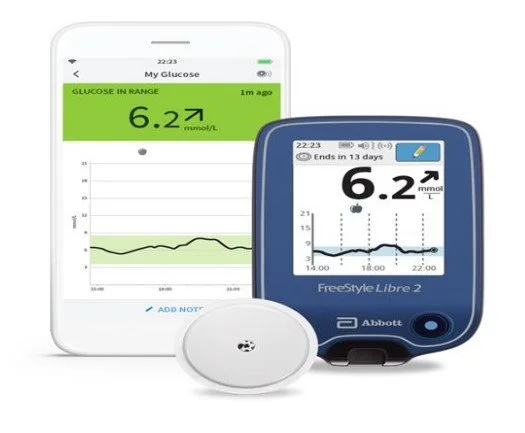New study from Leicester Diabetes Centre highlights missed opportunity to support women at risk of type 2 diabetes after gestational diabetes
A newly published study from the Leicester Diabetes Centre (LDC) reveals that many women diagnosed with gestational diabetes mellitus (GDM) feel forgotten by the healthcare system once their pregnancy ends, despite being ten times more likely to develop type 2 diabetes.
The qualitative study, published in Diabetic Medicine and funded by the National Institute for Health and Care Research (NIHR), explored the experiences of 10 women living in Leicester, Leicestershire or Rutland who were previously diagnosed with GDM. Researchers found a consistent lack of communication about long-term type 2 diabetes risk and minimal support offered to help women manage that risk.
The study found that communication about type 2 diabetes risk following a diagnosis of gestational diabetes was often brief, inconsistent, or absent. Many women recalled being told about their increased risk only in passing during pregnancy, with little to no follow-up after birth.
For most, the only contact postnatally was a routine letter inviting them to a blood test, offering no further explanation, education or support. As a result, some women assumed they were no longer at risk, while others felt abandoned by the healthcare system during a critical time for intervention.
This lack of ongoing support contributed to significant gaps in understanding about what type 2 diabetes is, how it develops, and how it can be prevented. Several women described feelings of uncertainty, fear or resignation about their future health. Many said they would have welcomed more structured education, digital resources, personalised advice, and a more joined-up approach from healthcare professionals.
The study highlights a pressing need to improve continuity of care and equip women with the knowledge and confidence to manage their risk long after pregnancy.
To address the gaps in care identified by the study, women suggested a range of practical solutions. These included access to structured group education sessions that explain what type 2 diabetes is and how to reduce personal risk, along with opportunities for peer support.
Participants also emphasised the value of both printed and digital resources that could be revisited over time, helping reinforce key messages. Crucially, women wanted information and support to be personalised to their individual circumstances, taking into account cultural background, family life, financial pressures, and preferred ways of learning.
They also called for more consistent and ongoing communication from healthcare professionals, delivered with empathy and tailored to their stage of readiness, to help them feel informed, supported and in control of their health.
Dr Molly Caba, first author of the study and Research Assistant at LDC, said: “Women who’ve had gestational diabetes are at significantly increased risk of developing type 2 diabetes, but many don’t realise this, and very few are supported to do anything about it.
“Our findings show the need for a more joined-up, sustained approach to postnatal care, where women feel seen, informed, and empowered.”
Professor Kamlesh Khunti, Co-Director of LDC and co-investigator, added: “This research shines a light on a key gap in the diabetes prevention pathway. At LDC, we’re committed to translating insights like these into action, improving the support offered to women at a crucial moment in their health journey.”
This work reinforces LDC’s role as a global leader in diabetes research, prevention, and education, helping to improve long-term health outcomes for women and support more compassionate, informed care pathways.
This qualitative study forms part of the wider NIHR-funded project: Pilot Implementation of the Babysteps web-app across Leicester, Leicestershire and Rutland for women with a history of gestational diabetes. The project is funded by NIHR ARC Health and Care Inequalities National Priority Consortium.
Stock image for illustrative purposes.




